
January 14, 2017

January 21, 2017

January 28, 2017

January 28, 2017

January 28, 2017

January 28, 2017

January 28, 2017

February 4, 2017

February 4, 2017

February 11, 2017

February 11, 2017













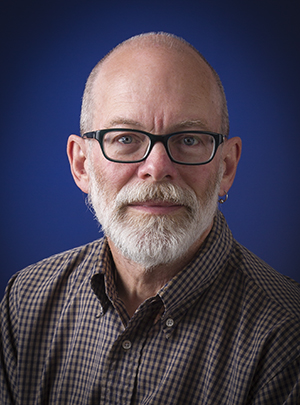
Mark Turner
Mark Turner is the owner of Turner Photographics and has been a professional photographer since 1993, specializing in gardens and native plants for books, magazines, and commercial clients.
He is the photographer and co-author of Wildflowers of the Pacific Northwest (Timber Press, 2006) and Bellingham Impressions (Far Country Press, 2007), and the smartphone app, Washington Wildflowers. His latest book, Trees and Shrubs of the Pacific Northwest (with co-author Ellen Kuhlmann), was published by Timber Press in 2014.
His work has been published in Sunset, Garden Design, Birds & Blooms, American Gardener, Horticulture, This Old House, Organic Gardening and other magazines and in books from Timber Press, Sunset Books, Cool Springs Press, Rodale, Meredith, and Lone Pine publishers.
He is past president of the Koma Kulshan chapter of the Washington Native Plant Society, a member of Garden Writers of America, and Professional Photographers of America. He has an M.A. in Telecommunications from Kent State University and a B.S. in Audio-visual Communications from Rochester Institute of Technology. Mark teaches photography classes at Siskiyou Field Institute, North Cascades Institute, and other northwest locations.
For the Yard and Garden Series 2017, Mark will present:
37 Native Gems for Northwest Gardens
5000+ species of plants are native to the Pacific Northwest from delicate annuals to towering conifers. Stunning photography will show garden-worthy selections for both spotlight and problem areas: wet shade? dry shade? sun-baked west facing slope? Do you need ideas for a front entry that must look good year-around, provide a prickly barrier or attract birds and butterflies? Learn about natives that could fit your personal landscape.
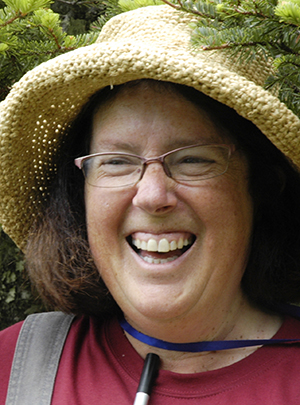
Linda Buetler
Linda Beutler has been the curator of the Rogerson Clematis Collection in Oregon since July
currently serving a second term. She has been an instructor of Horticulture at Clackamas
Community College since 1996. Her latest book, Plant Lovers Guide to Clematis was published
by Timber Press in 2016.
For the Yard and Garden Lecture Series, 2017, Linda will present:
Clematis All Year
Join clematis author and curator for a tour of clematis as they bloom through the four seasons. Careful selections allow gardeners in maritime climates to have clematis in bloom 365 days a year! Linda’s talk will cover cultivation, selection for color, bloom time and re-bloom options.
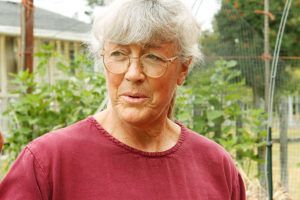 Judith Alexander
Judith Alexander
Judith Alexander will be speaking on behalf of two efforts she has engaged during the past 7 or 8 years: 1.) motivating neighborhoods to start cooperative community food gardens and 2.) initiating a local food system council to assist Jefferson County in establishing food security.
Most of the 25+ neighborhood community gardens are collectively planted and collectively harvested, contrary to the more common pea patch model where people garden their own individual small plots, significantly limiting options for crop variety. People can learn from each other, learn to share, accept each other’s gifts and talents, as well as limitations. More than food is grown in these gardens.
The Jefferson County Local Food System has been in place for two years. It is comprised of members of our Food Provision System, and represents as many sectors as possible: seed growers, farmers, permaculture savvy folks, aquaculture, value added producers, food safety regulators, educators, nutritionists, restaurateurs, institutional chefs, distributors, community food activists, and food waste managers are some categories represented around the table. These folks safeguard the future food security of Jefferson County by monitoring where our system can be strengthened and where barriers can be removed.
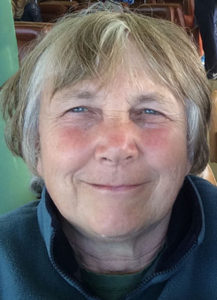 Lys Burden
Lys Burden
Lys Burden will be speaking for Jefferson County Food Bank Farm & Garden (FBFG) non-profit organization. She has worked on behalf of their volunteer food gardening efforts for local food banks for the last five years. Local gardens dedicated to growing fresh, organic vegetables specifically for food banks have been very productive, delivering a total of 16,500 pounds of freshly picked produce during that time. Recent productions has reached more than 5,000 pounds annually.
Production will grow as more land is donated for this use and more volunteers join the fun of growing vegetables for others. Volunteers always go home with plenty of produce for home use, and production gardening can be highly educational, as good gardening techniques become crucial for the sustainability of high production.
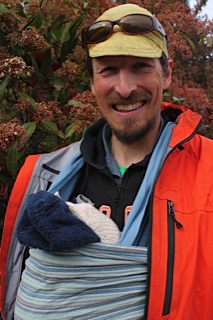 Zach Gayne
Zach Gayne
Zach Gayne will speak for the Port Townsend High School garden. This garden has greatly increased in size over the last several years and is starting to produce food for the district’s food services as well as its culinary arts classes.
Ninth grade students are in the garden once a week throughout the school year and are actively caring for the soil , asa well as planting, harvesting and eating!
In the 2016 growing season, the garden produced over 2,000 pounds of vegetables and berries. The garden is also beginning to compost valuable food waste generated in the school kitchen. There is a great deal of optimism and support within the school district for furthering our gardening education efforts.
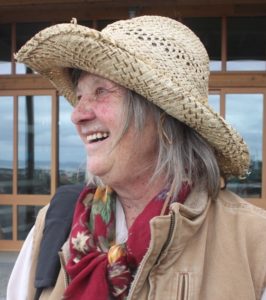 Karen Kastel
Karen Kastel
Karen Kastel is the Food Recovery/Gleaning Coordinator for Food Justice Jefferson County, a program of WSU Extension Jefferson County. Karen and a group of volunteers go out into the fields of small farms and “glean” produce, pick what’s left over after the farmer’s harvest. This food is distributed to four food banks in the county, senior meal programs in Port Townsend and Tri-Area Community Center (Chimacum), Jefferson County YMCA Program summer meals, Jefferson County Mental Health, Dove House and The Boiler Room.
Karen also solicits seeds from various vendors as well as produce starts in the spring. These are also distributed to the food banks as well as to all school gardens throughout the county.
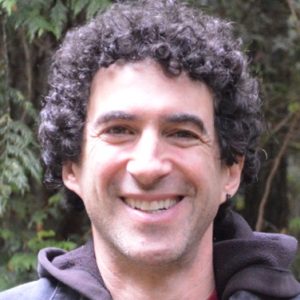 Seth Rolland
Seth Rolland
Seth Rolland co-founded Quimper Community Harvest, a local fruit tree gleaning group, in 2008 with Cathie Wier and Judy Alexander. Over the last 9 years, over 40 volunteers have harvested excess fruit from local trees, delivering 68,000 pounds of fresh, local, organic fruit and vegetables to schools, food banks and seniors.
As part of that effort, Seth organized the planting of a 70 fruit tree orchard at Blue Heron middle school that produces fruit students pick and share with their classrooms.
“Growing food is growing community. It’s what we all crave.” Author Unknown
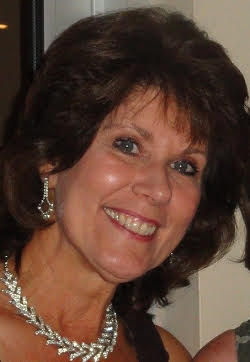 Arlene West
Arlene West
Arlene West was born and raised in Mount Vernon, Washington in the heart of the Skagit Valley where growing plants and gardens were part of life.
Arlene has moved throughout Washington State and created inviting spaces wherever she lived. In 2000 she moved to Silverdale, in Kitsap County to property filled with large Douglas fir, pine trees and too much shade for growing colorful plants. These shady conditions inspired her to take the WSU Master Gardener Training Program and become certified in 2004.
With her new knowledge she began to “work with” what she had to create texture gardens using grasses, ferns, hostas, shrubs — anything that would survive acid soil and lots of shade. Garden rooms emerged. Colorful flower pots are a staple in her garden; at last count she has 140 container gardens.
You can find a featured story on Arlene and Bill West’s woodland garden in the Spring 2014 edition of the West Sound Home and Garden Magazine. http://wshg.net/the-garden/2014-04-03/magical-magnificent-woodland-garden-bill-arlene-west/
For the 2017 Yard and Lecture Series, Kathy Hawkins and Arlene West will present:
Whether Your Container is Round or Not
Learn the tips and tricks to take a container planting from ordinary to extraordinary by reading the color cues and textures provided by key plants. Kathy and Arlene will demonstrate planting a container with plants that last through the year and adding accent plants for seasonal color splashes. A slide presentation will show you how to be creative with your containers and how easy it is to add vegetables during the spring and summer season.
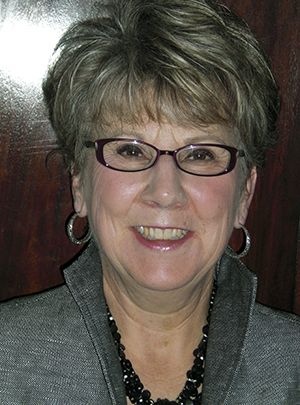
Kathy Hawkins
Kathy grew up in Alaska with parents who passed on their love of gardening. Container gardening combines her love of color, plants, and design .
Cooking and gardening are two of Kathy’s favorite activities. For the past nine years, Kathy has been actively involved in the Master Gardener program; she and a fellow master gardener have organized the seminar program for the Kitsap Master Gardener foundation for the past two years.
Recently, Kathy and Arlene West started a container business, Floral & Foliage, where they can share their passion for containers.
For the 2017 Yard and Lecture Series, Kathy Hawkins and Arlene West will present:
Whether Your Container is Round or Not
Learn the tips and tricks to take a container planting from ordinary to extraordinary by reading the color cues and textures provided by key plants. Kathy and Arlene will demonstrate planting a container with plants that last through the year and adding accent plants for seasonal color splashes. A slide presentation will show you how to be creative with your containers and how easy it is to add vegetables during the spring and summer season.
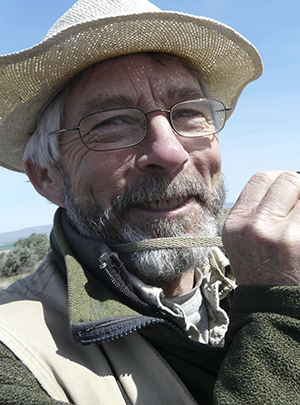
Joe Arnett
Joe Arnett has worked as a botanist for over 30 years, mostly in Washington State, but sometimes ranging as far afield as arctic and southeast Alaska, California, Canada, Mexico, Minnesota, Nevada, and New York.
Keenly interested in nature all of his life, his formal study of botany began in 1982 at Western Washington University with Ron Taylor, and he completed a master’s degree in plant systematics there in 1989. He worked for several years as an independent contractor to a variety of federal and state agencies and conservation organizations, and then for eight years as a botanist and wetland scientist for a national environmental firm. His work included floristic inventories, rare plant surveys, conservation planning, vegetation analysis, wetland delineation, and mitigation planning and monitoring.
In addition to consulting, Joe taught field botany and plant identification in a variety of venues, including community colleges, the North Cascades Institute, the Washington Native Plant Society, and Bastyr University.
He is the author of a manual for plant identification – Botanical Primer, a Systematic Introduction to Plant Identification – and of a book of essays titled Walking in the Beauty of the World, Reflections of a Northwest Botanist, published by the Washington Native Plant Society in 2004. Recently he had a lead role in completing a Field Guide to the Rare Plants of Washington, published by the University of Washington Press.
Since 2005, Joe has served as the state rare plant botanist for the Washington Natural Heritage Program. He works in partnership with federal and state agencies, non-profit organizations, conservation trusts, academic institutions, and individuals around the state to study and conserve the rare plants and ecosystems of Washington.
For the 2017 Yard and Garden Lecture series, Joe will present:
Rare Native Plants
Learn about beautiful rare plants and how they are studied from Joe Arnett, a rare plant botanist for the Washington Natural Heritage Program, Department of Natural Resources.
The science-based non-regulatory program was established by the State Legislature to provide scientific support for conserving biological diversity. A primary responsibility of the program is to establish and revise the Washington rare plant list and maintain a statewide database of rare species while working in partnership with federal and state agencies, conservation organizations, academic institutions, and individuals.
This talk presents the beautiful and rare plants of Washington, how they are studied, and the work that is being done to conserve them.
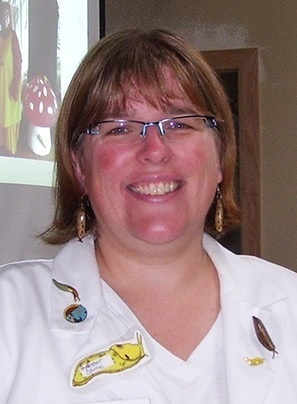 Cori Carlton
Cori Carlton
Cori Carlton, aka “Professor Slime,” has a Bachelor of Science degree in biology and recreation/park administration from Central Michigan University.
Cori’s fascination with slugs started at a young age but expanded when she went to school and eventually moved to the mecca of the slug world, the Pacific Northwest. Cori has spent over 20 years studying these slime-tastic creatures and teaching others about them through her “Slug University” curriculum.
Cori has held leadership positions in Michigan, Indiana, and Washington over the past 19 years including: Environmental Education Director for the Detroit and Seattle YMCAs, Education Program Specialist for Northwest Trek Wildlife Park.
She is currently the WSU Master Gardener Program Coordinator in Thurston County
For the 2017 Yard and Garden Lecture series on Feb 11, Cori will present:
Slug University- Slugs 101 – Friends or Foes?
What animal has one foot, one lung, and more teeth than a shark?
That’s right. It’s a slug.
When you mention the word “slug,” most gardeners have a few words to say and most of it isn’t nice. In this class you’ll earn your degree in “Slugology” by learning the basics of slug life. This includes the benefits of native slugs, why the non-native slugs eat your precious plants, the stories slime trails tell and so much more. You’ll also come away with strategies on how to get slugs to work for you and not against you in your garden.
Come join us and have a slimy good time learning about slugs!
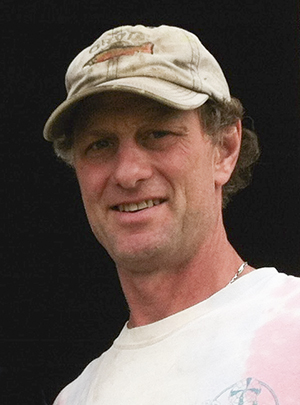
Richard Lewis
-Masters of Entomology, WSU
-Research Technician USDA
-Faculty Research Assistant, U of Maryland
-Staff Research Associate, U of California, Davis
Bugs: The Good Bad and the Beautiful
Most bugs are harmless or beneficial. Richard will present the basic principles of safe, effective and environmentally sound pest management to minimize damage caused to tree fruits, gardens and ornamentals by the key pests we encounter in this area. He will also address how to attract and maintain native pollinators.
Are you a member of the Jefferson County Master Gardeners?
Do you want to add to this blog? Great!
Send your information to blog@jcmgf.org or login to fill out our Add to Blog Form.
You must be a JCMGF Member with online access in order to post comments here.
If you are a member and need online access, please Create Your Member Account using the email address you have on file with the Foundation.
Once you have been verified, you may log in and post!

